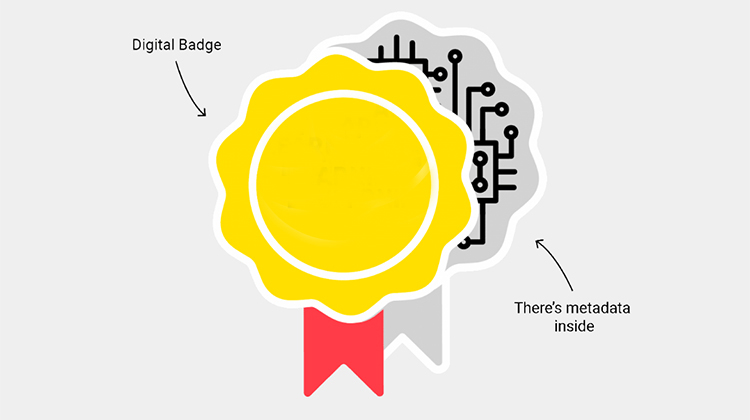How Digital Badge Technology can Help Students Land that All-Important Graduate Role

As students move through their school education, they gradually accumulate certificates, achievements and awards. For the majority of schools in Australia, those achievements are tracked on a learning management system such as Canvas, SchoolBox, or even Google Classroom.
Your school’s learning management system (LMS) is a great way to store or manage a student's achievements, grades, and (depending on functionality) certificates while the student is at the school. But what happens when the student moves to a new school, which uses a completely new system? Or when they graduate into the real world, where a pile of certificates stuffed in a cupboard at their parent’s house is all that remains of their achievements?
For an increasing number of educators, digital badges are proving invaluable in helping students carry their achievements with them, digitally, throughout their lives – and putting them to good use in their future careers.
What are Digital Badges?
Digital badges are a virtual acknowledgement of an earned credential, demonstrated skill or professional achievement. They’re a simple, secure way for anyone to share verified achievements or activities with businesses, employers, organisations, or even through their personal social media accounts.
The digital credential contains secure ‘metadata’ about the student and their activity or achievements, including the issuing organisation or authority, date issued, expiry date, and a description of the unique information behind the credential being issued.
Through platforms like Learning Vault, a student's badges, credentials or certificates are stored in their very own digital passport, or ‘backpack’, which is a digital portfolio containing an individual’s earned credentials. This digital passport can be fully integrated into your schools LMS, so that they can take this with them as they move.
Digital credentials can be shared anywhere online, including their digital CV, providing instant verification of your credentials, qualifications, experience and skills. Potential employers can quickly and easily verify their credentials, adding an extra layer of transparency and trust.
Creating a Virtual ‘Backpack’
Digital badges are great for schools looking to create a broader, deeper education for their students that goes far beyond the stock-standard final grades. Badges can be created for extra-curricular activities, participating in programs, and can track the time spent completing certain activities. Badges can include an expiration date for skills that need to be refreshed after a particular amount of time.
These data are invaluable for students who might have previously struggled to fully understand their interests, especially for those old enough to be considering a potential career path, or stuck while writing their personal statement when applying to university.
Whether it’s time spent volunteering, playing under-13s netball, participating in a drama club, or excelling at English – digital backpacks provide a more holistic view of the individual, as opposed to a single, impersonal ATAR or HSC mark.
The end result is that by the time a student takes their digital backpack to an employer, they’ll be presented with a well-rounded view of the individual student by looking at all of the credentials they’ve earned during their time at school and beyond.
For students with their sights set on an international career, digital badging platforms like Learning Vault are built to comply with all global badging standards – meaning that students’ digital badge, credential or certificate is designed to be compatible anywhere and everywhere.
Digital backpacks are also invaluable for students who have chosen not to pursue higher education, but still have a whole host of life skills and experience under their belt. Without verified credentials, it can be very difficult for them to prove these skills - even if in reality, they clearly are the best candidate for the job.
With many graduates facing increasingly competitive entry-level roles, it’s important to be able to prove more than simply ‘I studied X at Y’. By providing the HR department with a wide range of verifiable skills, certificates, and credentials, they’ll be positioning themselves well ahead of their fellow peer group.